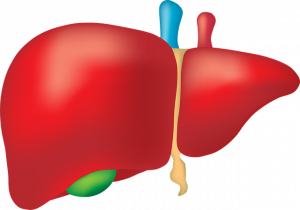Fatty liver disease is a condition that affects millions of people worldwide. It is a condition where fat accumulates in the liver, leading to inflammation and damage. Fatty liver disease can be caused by a variety of factors, including alcohol consumption, obesity, and certain medications. Early detection and treatment are crucial in managing this condition and preventing further damage to the liver.
What is Fatty Liver Disease?
 Fatty liver disease, also known as hepatic steatosis, is a condition where fat accumulates in the liver. This can lead to inflammation and damage to the liver cells. There are two types of fatty liver disease: alcoholic fatty liver disease and non-alcoholic fatty liver disease (NAFLD). Alcoholic fatty liver disease is caused by excessive alcohol consumption, while NAFLD is caused by factors such as obesity, high cholesterol, and type 2 diabetes.
Fatty liver disease, also known as hepatic steatosis, is a condition where fat accumulates in the liver. This can lead to inflammation and damage to the liver cells. There are two types of fatty liver disease: alcoholic fatty liver disease and non-alcoholic fatty liver disease (NAFLD). Alcoholic fatty liver disease is caused by excessive alcohol consumption, while NAFLD is caused by factors such as obesity, high cholesterol, and type 2 diabetes.
Causes of Fatty Liver Disease
There are several risk factors for developing fatty liver disease, including obesity, high cholesterol, type 2 diabetes, and metabolic syndrome. Other factors that can contribute to the development of fatty liver disease include rapid weight loss, malnutrition, certain medications, and viral hepatitis.
The most common cause of fatty liver disease is obesity. When a person is overweight or obese, their body stores excess fat in various organs, including the liver. This can lead to inflammation and damage to the liver cells.
Symptoms of Fatty Liver Disease
Fatty liver disease often does not cause any symptoms in its early stages. However, as the condition progresses, physical symptoms such as fatigue, abdominal pain, and jaundice may occur. Behavioral symptoms such as confusion and difficulty concentrating may also occur.
Diagnosis of Fatty Liver Disease
Fatty liver disease can be diagnosed through various diagnostic tests such as blood tests, imaging tests like ultrasound or MRI scans, or a biopsy of the liver. Early diagnosis is crucial in managing this condition and preventing further damage to the liver.
Treatment Options for Fatty Liver Disease
Treatment for fatty liver disease depends on the underlying cause of the condition. For alcoholic fatty liver disease, the most effective treatment is to stop drinking alcohol. For non-alcoholic fatty liver disease, lifestyle changes such as weight loss, exercise, and a healthy diet are recommended. In some cases, medication may be prescribed to manage symptoms or reduce inflammation in the liver.
Diet and Lifestyle Changes to Help Manage Fatty Liver Disease
Diet and lifestyle changes are crucial in managing fatty liver disease. A healthy diet that is low in saturated fats and high in fiber can help reduce inflammation in the liver and promote weight loss. Exercise is also important in managing this condition as it can help reduce body fat and improve insulin sensitivity.
Foods to avoid include processed foods, sugary drinks, and alcohol. Foods that are beneficial for those with fatty liver disease include fruits, vegetables, whole grains, lean protein sources like fish and chicken, and healthy fats like olive oil and avocado.
When to Seek Medical Attention for Fatty Liver Disease
It is important to seek medical attention if you experience any symptoms of fatty liver disease or if you have any risk factors for developing this condition. Regular check-ups with your healthcare provider can help monitor your liver function and detect any changes early on.
Fatty liver disease is a common condition that can lead to serious health complications if left untreated. Early detection and treatment are crucial in managing this condition and preventing further damage to the liver. Diet and lifestyle changes are important in managing this condition, along with medical treatments if necessary. If you have any concerns about your liver health or if you have any risk factors for developing fatty liver disease, it is important to seek medical attention promptly.








